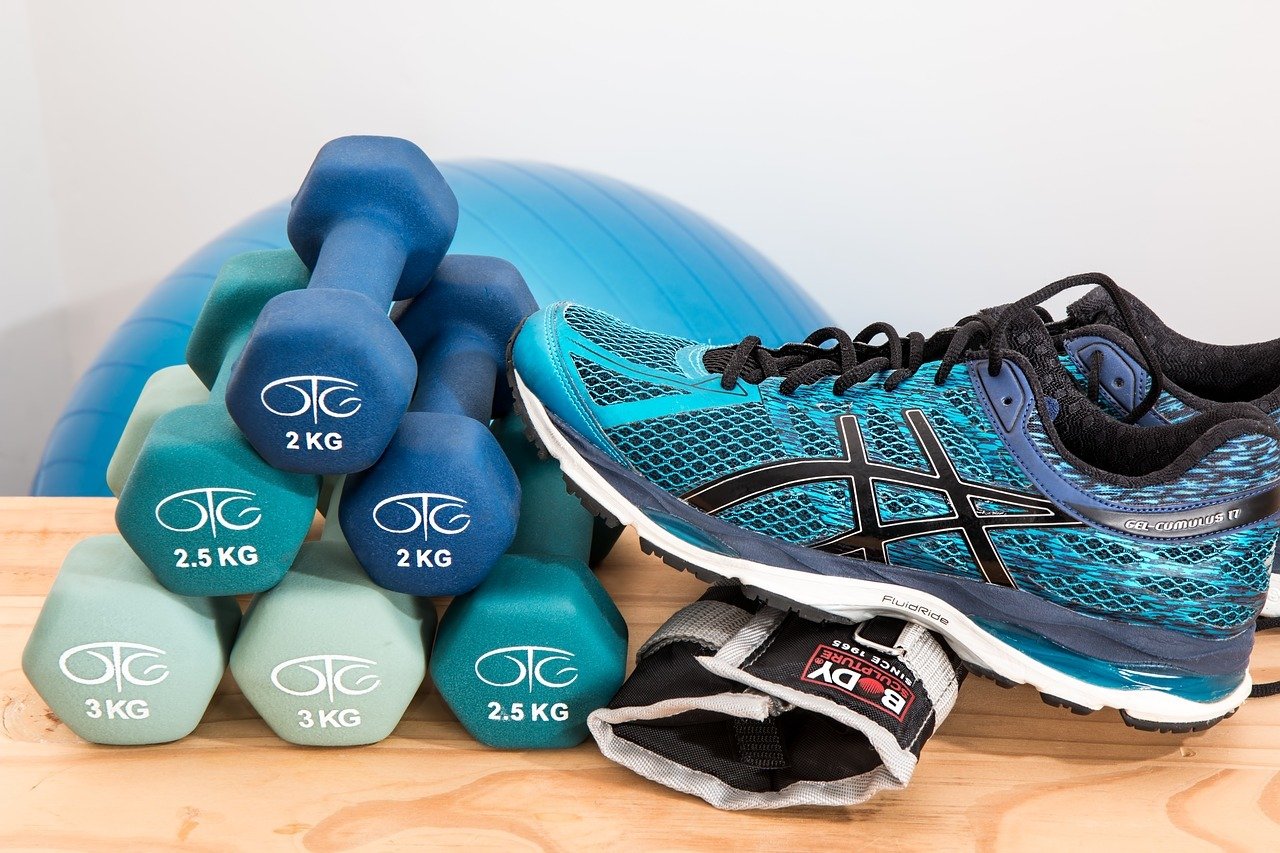Weight loss
How Much Exercise Do You Need Every Day To Lose Weight?

Weight loss is a goal that requires both a disciplined dietary approach and workout program, among other factors, to achieve and excel.
How much exercise is needed every day to achieve your weight loss goal is a common question and not one that generally has a clear answer.
Unfortunately, there is not a magic number of minutes, reps or hours needed to lose weight, rather there are a number of variables that need to be considered in order to figure out the right number.
We’ll examine the different variables that come into play when trying to determine how much exercise is needed in our workout program to give you a roadmap for determining the exercise timeframe that works best for you.
Variable 1: Calories Consumed and Calorie Quality
The first principle of weight loss is that to lose weight we must achieve a caloric deficit or expend more calories than we are consuming.
Thus, in order to know the amount of exercise needed to lose weight, we need to know what our daily caloric intake is, and just as importantly, what the sources are for those calories (for example, vegetables versus potato chips).
To this point, if you operate on a low-calorie diet, generally speaking, it would take less exercise to lose weight and you may be fine with a moderate 3-4 day a week training plan. Conversely, if you eat excessive amounts or use tons of supplements, you’ll need to up your workout program and really push to get back into the caloric deficit mode.
Variable 2: Exercise Type and Intensity
The second key variable is the type of workout program, and more specifically the intensity. 20 minutes on the elliptical has a far different energy output than 20 minutes of all-out sprinting.
This variable can also dovetail with our first variable, in that the greater the number of calories consumed, the more energy we may have for high-intensity exercise, whereas if we aren’t consuming too many calories, we may not need to exercise for an especially long time or at a high intensity.
In general, workout program modalities that are more aerobic will require a longer time to see any sort of effective impact on weight loss.
Jogging, biking, the elliptical or other options would all require a significant amount of time, potentially hours over the course of a week, to see a meaningful impact.
Conversely, anaerobic activities such as sprinting, resistance training or interval training methods will be more effective in a short amount of time, yet their intensity level is much higher and thus they have a certain level of pre-requisite fitness to achieve their full potential and results.
Variable 3: What is the Weight Loss Goal? How much time do we have to achieve it?
The third variable is arguably the most important, what is the weight loss goal?
Much like our car ride or travel plans are determined by our destination, our workout program, and weight loss journey will be dictated by the goal we have set.
If the goal is to lose 5 pounds in two months, that is a fairly modest and achievable goal for most and would not require much additional exercise.
If you were a sedentary person prior to your goal you would only need to exercise 20-30 minutes a day for 3-4 days a week to achieve this goal.
Conversely, if your goal is to lose 30 pounds in two months, the equation is radically different, and it would take an extreme amount of exercise, multiple hours every day at high intensity to achieve that same goal.
Putting it All Together: Finding the Right Number
Now that we have examined the variables, we can think about how to more effectively answer the question of how much exercise we need per day to lose weight.
If you have a low caloric intake, generally speaking, are planning on utilizing low-intensity aerobic exercise and have a modest goal than you might be ok with 30-45 minutes of aerobic exercise a day.
However, if you love to eat, love to lift weights and also have an ambitious goal for weight loss, you’re going to have to spend hours per day working out to reach those goals.
The ultimate recommendation would be to accurately assess your starting point as compared to your goal, look at how much time you have to reach that goal, and then make a workout program accordingly to reach it rather than rely on a standard number or cookie-cutter approach that doesn’t apply to every person.
photos:www.pexels.com









ΝΤΕΤΕΚΤΙΒ
April 22, 2018 at 10:50 pm
It’s a shame you don’t have a donate button! I’d without a doubt donate to this brilliant blog! I suppose for now I’ll settle for bookmarking and adding your RSS feed to my Google account. I look forward to fresh updates and will share this blog with my Facebook group.
Talk soon!
admin
April 23, 2018 at 6:20 pm
Thank you for your interesting.
No donate button but you can like and share the post.
Good reading.
Active Anti Aging Cream Review
April 29, 2018 at 12:35 am
What’s up, after reading this amazing piece of writing i am too cheerful
to share my familiarity here with friends.
admin
April 29, 2018 at 5:04 pm
Thank you for your interesting.
You can like and share the post with your friends
to help us continue the best work.
Good reading.
Pingback: Finding joy in life helps you live happier and longer! - The Best Ideas Done Just For You
Pingback: How To Attain Your Weight Loss Goals With High Protein Snacks
Pingback: Chronic Pain : How Gluten Affects Conditions | Eliminate Gluten From Your Diet
Pingback: How Does Fiber Aid Digestion? Soluble Fiber Or Insoluble Fiber
Pingback: 7 Ways To Live A Healthier Lifestyle | Healthy Diet and Exercises Are Enough?
Pingback: 10 Tips To Boost You Mental Wellness Whether You Have A Mental Health Condition Or Not
Pingback: 15 Tips To Improve Your Physical Health | For Good Physical Wellness
Pingback: What are Digestive Problems And What Are The Causes?
Pingback: Does A Ketogenic Diet Lead to Weight Loss | Is it safe to do a ketogenic diet?
Pingback: 5 Serious Motivators To Never Miss Another Workout | Can You Stay motivated To Workout?
Pingback: What is Ketosis? Ketosis The Body's Backup Way To Get Energy
Pingback: Weight Loss Tips For Busy People | Why You Are Not Losing Weight?
Pingback: Aging in Healthy Ways Is Within Your Control | Live Well Into Our Golden Years